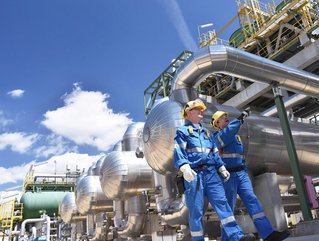How do oil and gas fit in with net zero supply chains?


Tell us about your role with EIC
I'm Stuart Broadley, CEO of Energy Industries Council (EIC). The EIC is the UK's largest energy trade association, and was set up in 1943. We have close to 800 members who are all energy supply chain businesses, both in the UK and in different countries around the world. Ours is a global network and community.
With our data and events we’re here to help members understand the fast-changing energy market. Increasingly, we’re helping them move seamlessly from their current sector which might be oil and gas, into other sectors, like nuclear, biogases or hydrogen. This is a big part of what companies are having to do now.
How does the EIC work?
We work with all stakeholders - governments, operators, developers, utility companies, ministries, and boardrooms of all types of companies, large and small. We have early insight into what’s happening, what strategies are working best and which direction of travel the policies are moving. We've not had this much potential for change and growth for as long as anyone can remember. I've not seen anything like it, certainly in my career.
What’s the future for supply chains?
We’re now at a time where all markets, all energy sectors, and also transport and industry, are growing fast as they rebound from the pandemic. For the first time in a long time, supply chain is in great demand, and will be able to start picking and choosing the business they want to do.
They’ll be able to start increasing prices, which they've not been able to do for a long time. There will be many opportunities across many sectors and regions, for probably the next three years, because of the bow wave of demand that's hitting us.
A problem for supply could be that growth is restricted by a lack of skills and resources, but also by lack of ambition. Those that are not brave enough will miss the opportunity.
Then, of course, you add into all of this the wonderful world of decarbonization and net zero, which has now moved way beyond soundbites and roadmaps. The world is actually changing.
Will supply chains be net zero by 2050?
The big thing about COP26 last year was that more and more countries are signing up to their own 'Nationally Determined Contributions, which is a commitment to reduce greenhouse gas emissions, and legislating for it. Although some countries are not hitting a 2050 target - China is 2060 and India is 2070 - it's still very encouraging.
Every country has a different transition to go through, because we’re all starting from a different place.
There is also good work around transparency now, so large organisations have to be more open and transparent around work they're doing on their carbon footprint and their actions on Scope Three emissions in their value chains. When something is measured, it tends to lead to change. So that is very encouraging.
How do you green a supply chain?
This is the key question. How do we move from talking about it to doing it? I think businesses will have to break it down into stages, or steps. From a typical supply chain point of view, I think step one is self-analysis: What is our carbon footprint? What is our direct and indirect impact on the environment, from both our operations and products?
Many businesses have not done this yet, but most believe they need to, not least because of stakeholder pressure.
Once businesses understand the scale of their sustainability challenge, there are practical and simple steps that a business can take to work towards net zero. First, switch to renewable power in facilities and factories. That's a pretty simple thing to do. If you happen to have factories in countries where renewable power is not available, then offset, by planting lots of trees, for example.
When will supply chains quit fossil fuels?
There will be strong demand for oil and gas for many years to come. A total of 70% of the world’s energy-spend in all new projects over the next five years will still be oil and gas. That's according to EIC data, by the way. Oil and gas is still the key market, and many supply chain companies will want to continue to use them.
People have to understand businesses are transitioning, and that it’s a journey.
When will oil and gas firms go green?
Oil and gas companies account for just 13% of the world's oil and gas production. The vast majority is produced by national oil companies that are state owned or state run - such as in Saudi Arabia, UAE and many other countries. They have a different strategy to decarbonization. They are keen to participate, and be part of the solution, not part of the problem.
But if we’re talking specifically about the international oil companies (IOCs) - which are predominantly in Europe and the US - then they understand they have a lot to do. They are setting their own net zero targets, and restructuring in order to start delivering on that.
The executives I've talked to in many IOCs are beginning to rebrand themselves as international energy companies (IECs). They have reached the stage where they want to do the right thing.
But it's a difficult thing for them to do quickly. The typical life-cycle for the projects they are involved in can be as high as 50 years, so they can't just make a change overnight. So it's understandable why they’re setting 2050-type targets for becoming net zero.
But in practical, operational terms, the EICs need to look at their Scope One, Two and Three emissions, just like everyone else. They need to use technology to decarbonize, and achieve net zero in their own operations and in those of their value chain.
This might mean upgrading facilities, electrifying, or reducing leakage. There are many ways to improve emission reduction and efficiency.






